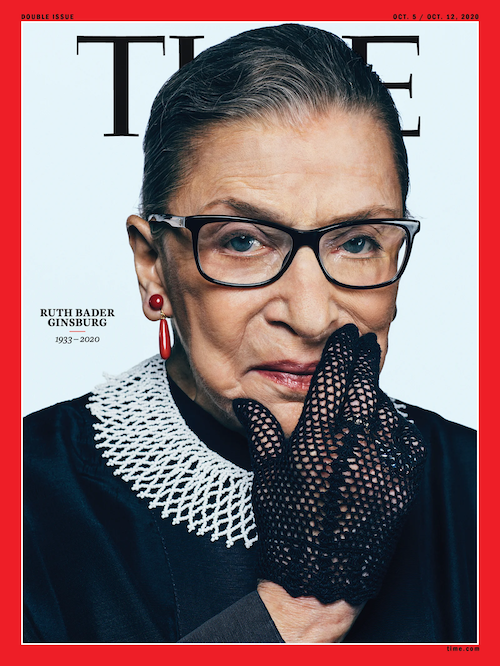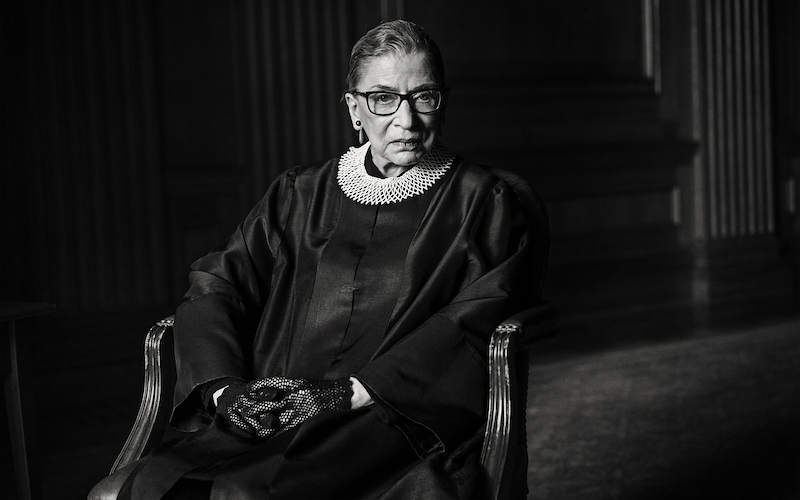Ruth Bader Ginsburg, often affectionately known as RBG, was an extraordinary jurist and trailblazer who left an indelible mark on American history. Serving as an Associate Justice of the Supreme Court of the United States from 1993 until her passing in 2020, Ginsburg dedicated her life to championing gender equality, civil liberties, and social justice. With her sharp intellect, unwavering determination, and profound empathy, she became an icon for millions around the world. This article delves into the remarkable life and legacy of Ruth Bader Ginsburg, celebrating her influential journey and the lasting impact she made on American society.
Born on March 15, 1933, in Brooklyn, New York, Ruth Bader Ginsburg grew up in a modest Jewish family. Despite facing gender-based discrimination throughout her formative years, Ginsburg excelled academically and went on to attend Cornell University. She later transferred to Columbia Law School, where she graduated at the top of her class. Despite her impressive qualifications, Ginsburg faced difficulty finding employment due to prevailing gender biases. This early experience would fuel her lifelong commitment to dismantling gender discrimination.
Ginsburg’s legal career gained momentum when she began teaching at Rutgers Law School and Columbia Law School, where she became one of the few female law professors in the country. As an advocate for women’s rights, she co-founded the Women’s Rights Project at the American Civil Liberties Union (ACLU). Ginsburg meticulously crafted her legal arguments, taking on cases that challenged discriminatory laws that perpetuated gender inequality.
Her groundbreaking work before the Supreme Court included cases such as Reed v. Reed (1971), where she successfully argued against a law that automatically preferred men over women as administrators of estates. Ginsburg’s strategic litigation approach, focused on addressing gender stereotypes and systemic biases, helped pave the way for landmark victories in subsequent cases. Notable among these was United States v. Virginia (1996), where the Court struck down the Virginia Military Institute’s male-only admission policy, marking a pivotal step towards gender equality in education.
In 1993, President Bill Clinton appointed Ruth Bader Ginsburg to the Supreme Court, making her the second woman to serve as a Supreme Court Justice. Throughout her tenure, Ginsburg played a crucial role in shaping legal interpretations on a wide range of issues, including abortion rights, voting rights, LGBTQ+ rights, and affirmative action. Her jurisprudence consistently emphasized the fundamental importance of equal protection under the law.
Notably, Ginsburg became renowned for her eloquent and persuasive dissenting opinions, which earned her a reputation as the “Notorious RBG” among her admirers. Her dissents became powerful calls for justice and equality, offering insightful legal analysis and powerful critiques of the majority’s decisions. Ginsburg’s dissents often laid the groundwork for future legal advancements and served as rallying cries for activists advocating for social progress.
Ruth Bader Ginsburg’s life and legacy are a testament to the power of determination and resilience in the pursuit of justice. Her unwavering commitment to gender equality and civil liberties transformed American society and inspired generations of activists, lawyers, and advocates. Ginsburg’s impact extended far beyond the courtroom, as she became a cultural icon and a source of inspiration for individuals seeking to challenge societal norms and systemic injustices.
Her death in September 2020 left a profound void, but her spirit and influence continue to shape the ongoing fight for equality. Ruth Bader Ginsburg will forever be remembered as a true champion of justice, leaving an enduring legacy that continues to inspire and ignite change in the pursuit of a more equitable society.

Beyond her legal accomplishments, Ginsburg’s personal character was equally remarkable. She possessed a deep sense of empathy and forged unlikely friendships with colleagues who held differing viewpoints. Her ability to find common ground and seek consensus, even in the face of ideological divisions, showcased her unwavering commitment to the principles of fairness and impartiality. Ginsburg’s impact on American jurisprudence and her relentless pursuit of equality have left an indelible mark on the nation’s legal landscape, ensuring that her legacy will endure for generations to come.
Ruth Bader Ginsburg’s influence extended beyond her role as a justice on the Supreme Court. She became a pop culture icon, celebrated for her sharp wit, distinctive fashion sense, and unwavering dedication to justice. Her resilience in the face of personal health battles, including multiple bouts with cancer, only further exemplified her strength and determination.
Ginsburg’s impact on society was far-reaching, as she inspired countless individuals, particularly young women, to pursue careers in law and public service. Her legacy serves as a reminder that one person, armed with knowledge, courage, and unwavering principles, can create lasting change. As the nation reflects on her remarkable life, Ruth Bader Ginsburg will forever be celebrated as a beacon of hope, a tireless advocate for equality, and a symbol of the enduring power of justice.
For readers interested in delving into the inspiring journeys of other remarkable women who have left a lasting impact on history, we recommend reading “5 Inspirational Women Who Paved The Way For Change And Empowerment.” From groundbreaking scientists and influential writers to dedicated social activists and visionary political leaders, these extraordinary figures have shattered barriers and championed progress.
















